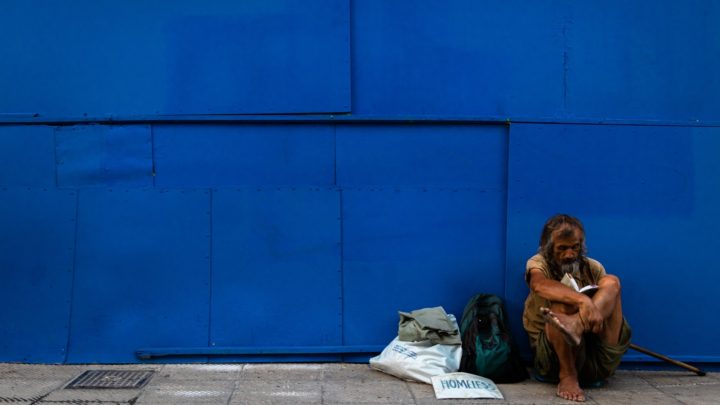A fringe economic theory which proposes a minimum income guarantee for the society is finally becoming a mainstream discussion due to the COVID crisis. The idea of long-term economic support to low-income groups in times of uncertainty otherwise referred to as the Universal Basic Income (UBI) has gained rapid popularity & support in this global pandemic of COVID-19. For a start, UBI provides for a basic minimum allowance to everyone in the society (hence, universal) regardless of the circumstances or income. These benefits are especially needed
The main advantage is that ensures a minimum standard of income for everyone – without any costs and bureaucracy of means-tested benefits. Also, it avoids the disincentive to work that can occur with means-tested benefits. In times of crisis, a UBI can also provide a social safety net with minimum admin costs.
Universal Basic Income — Pros and Cons
A recent Gallup and Northeastern University survey found resonance for the UBI amongst 75% Canadians and 77% in the UK for workers who lose their jobs owing to AI advancements in the field. Sadly only 43% in the United States supported the call for a “government-instituted program that would provide every adult with a specific amount of money each year” despite Democratic Presidential candidate Andrew Yang advocating a UBI plan during his campaign run. AI’s imminent threat to livelihoods and the inevitable rise in class inequality isn’t out of question in the future, however, millions have been left unemployed today due to the ongoing COVID-19 pandemic, and more would follow as long as establishments remain under strict lockdown policy. Canada’s economy lost more than a million jobs in March alone, pushing the unemployment rate to a whopping 7.8% from 5.6% in February. According to Statistics Canada, 19.2 million Canadians had paid work in February before the coronavirus hit Canada with full force. A month later, barely 18 million still had jobs. The Federal government launched the Canada Emergency Response Benefit (CERB) to help businesses and workers who have been affected by the COVID-19 outbreak — $2,000 a month for up to four months for workers who lose their income as a result of the COVID-19 pandemic.
The CERB would cover Canadians who have lost their job, are sick, quarantined, or taking care of someone who is sick with COVID-19, as well as working parents who must stay home without pay to care for children who are sick or at home because of school and daycare closures. The CERB would apply to wage earners, as well as contract workers and self-employed individuals who would not otherwise be eligible for Employment Insurance (EI).
Government introduces Canada Emergency Response Benefit to help workers and businesses
In summary, there would be unforeseen circumstances waiting to happen much like the ongoing COVID-19 pandemic that’d affect the quality of life of millions through sickness or joblessness — a ticking time bomb, as it were, that’s just waiting to blow up. Only a longer-term, government-instituted UBI program would help in supporting families from falling through the cracks.
However, there are skeptics on this side of the border too. In March of 2016, Premier Kathleen Wynne’s Liberal party launched an optimistic trial to provide UBI called the ‘Ontario Basic Income Pilot’ (OBIP) — “to test a growing view at home and abroad that basic income could provide a new approach to reducing poverty in a sustainable way.” It was an ambitious experiment in the sense that a basic income payment was made available to couples or individuals, ensuring a minimum income level regardless of their employment status. The subjects were committed an amount of $16,989 per year for a single person, less 50% of any earned income, and $24,027 per year for a couple, less 50% of any earned income. 4000 participants were enrolled for this ambitious experiment which was planned to run for three years. Unfortunately, within a few weeks of a massive victory, Premier Doug Ford’s Conservative government announced the premature cancellation of the experiment ending a promising future for nearly two million Ontarians trapped in the cycle of poverty. It was one of the largest projects of its kind worldwide when it was aborted and it sparked global outrage.
Researchers at McMaster University and Ryerson University surveyed over 200 participants from the cancelled OBIP experiment and the research study [PDF], in fact, unearthed several interesting and useful findings:
- Many recipients reported improvements in their physical and mental health, labour market participation, food security, housing stability, financial status and social relationships.
- Basic income also had a noticeable impact on the use of health services, with many of the survey respondents indicating less frequent visits to health practitioners and hospital emergency rooms.
- For a significant number of participants, basic income purportedly proved to be transformational, fundamentally reshaping their living standards as well as their sense of self-worth and hope for a better future.
- The majority of those employed before the pilot reported working while they were receiving basic income. Many reported moving to higher-paying and more secure jobs.
- Those working before the pilot reported even greater improvements on some measures of well-being than those who were not working before.
The impact from the ongoing pandemic has crippled the economy in many ways and imposed an undue threat of financial burden over thousands resulting from indefinite lockdowns, job losses, and sickness. It’s vital for the Federal government to introduce a viable, effective, and permanent universal basic income plan for all Canadians. The McMaster-Ryerson research study has demonstrated the positive effects of an assured minimum basic income that outweighs its shortcomings by miles, in that, individuals who are supported financially by their governments feel secure in drastically improving their living standards when they’re able to live with dignity, it helps to stay out of the clutches of poverty in the long run, and it eventually transforms their careers into something better for themselves and for their families.
Jonathan Kho


